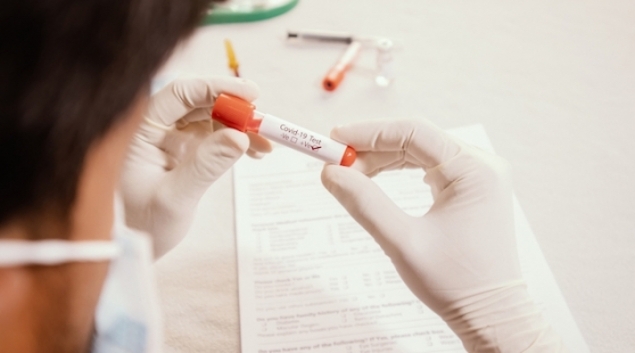
Testing shortages continue along with gaps in the supply chain for reagents, swabs, plastics, viral transport media and personal protection equipment, the American Medical Association and other health organizations told Department of Health and Human Services Secretary Alex Azar in a letter sent today.
The letter went out the day after HHS said it had state plans in place to ensure adequate testing and supplies.
It asks the administration to update the testing guidelines to prioritize those with a medically-indicated need for a COVID-19 test, including those with symptoms of the virus, those with known exposure and those in need of pre-procedure testing.
By updating the guidelines, the AMA said it hopes those groups will have access to testing services and timely return of results.
Along with the AMA, the letter was signed by the American College of Medical Genetics and Genomics, American Society for Clinical Pathology, Association for Molecular Pathology, Association of Pathology Chairs, College of American Pathologists and Infectious Diseases Society of America.
WHY THIS MATTERS
The organizations included in the letter said that updating testing prioritization is a “matter of critical importance.”
“We are increasingly concerned about the serious strains being placed on testing services for COVID-19, the impact those strains have on our ability to provide timely medical care to our patients, and ultimately on our ability to contain the spread of this dangerous virus,” the letter states.
The letter cites three main reasons for needing to reprioritize testing to put medically-needing patients first.
The first is that laboratories in hospitals and academic centers are struggling to perform testing and treat COVID-19 patients due to strains in the supply chain. Many labs have been unable to keep a supply of reagents, swabs, plastics, viral transport media, personal protective equipment and other items that they require.
Next, the letter says that the constraint on available testing supplies is beginning to detrimentally impact non-COVID-19 care.
“As the healthcare system begins to perform procedures that have been delayed due to COVID-19, these laboratories are struggling to accommodate demand for pre-procedure COVID-19 testing, which further jeopardizes clinical care for millions of Americans,” the authors wrote.
Beyond clinical care, supply chain issues are also impacting testing for other conditions and the letter says that many tests cannot be offered while working to meet the high demand for COVID-19 testing.
The final factor from the letter is that there has been an increase in demand for testing of asymptomatic individuals, including tests for employees, students and people hoping to travel.
“Given that laboratories already face significant issues in providing access to medically indicated tests and timely return of results, we urge the Administration to consider the utility of new testing prioritization guidelines,” the letter says. “Without improvement in available supplies, we simply do not have the resources to meet the huge demand for testing by asymptomatic individuals without exposure to COVID-19.”
The letter concludes by recommending that the administration support the development of rapid screening tests designed to be used in the home or at the point of care because they “could play a significant role in asymptomatic screening and surveillance efforts, as well as re-opening efforts,” without straining the diagnostic testing market.
THE LARGER TREND
HHS on Monday posted the July through December COVID-19 testing plans from all states, territories, and localities on HHS.gov.
For the plan, states were requested to detail how a minimum of 2% of the population would be tested each month as well as to submit a strategy to increase that number by the fall. Each state plan was required to include target numbers of tests per month, ensure adequate SARS-CoV-2 testing, and ensure testing plan provisions are in place to meet current and future surge capacity, including for nursing homes.
This letter follows Assistant Secretary for Health Admiral Brett Giroir’s statements that COVID-19 tests’ turnaround times are faster than what is being reported in the media.
He said that half of all tests are conducted in point-of-care settings, which can be returned in as quickly as 24 hours. The other half is sent to commercial labs, such as LabCorp, which say the average time to deliver results for the COVID-19 swab test is two to three days from the date of specimen pickup. For the COVID-19 antibody test, the average delivery of test results is one to three days from the date of specimen pickup.
ON THE RECORD
“Without adequate testing capacity to rapidly serve those with a medically indicated need for testing, we risk continued widespread transmission of this disease,” the letter says. “We also threaten the ability of healthcare facilities to continue to offer critical medical services to those in need of care.”
Twitter: @HackettMallory
Email the writer: mhackett@himss.org
